Welcome to UGM MUN Community x JOINMUN X Open Simulation's Tumblr page! You're free to stay - but don't let us distract you from the committee session for too long.
Don't wanna be here? Send us removal request.
Photo
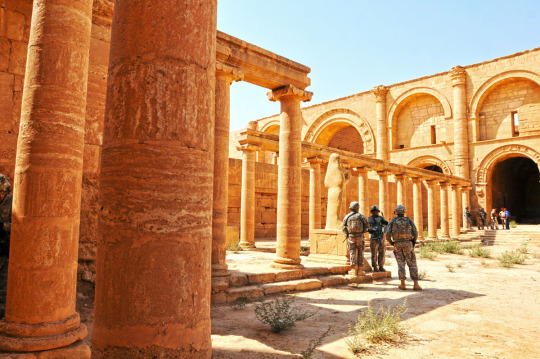
History Scattered All Around: On the Restitution of Cultural Property and What Should Occur - Xinhua — Wang Jianggang
On 5 June 2021, UNESCO held a conference regarding the restitution and return of cultural property. This was attended by eleven countries, namely the People’s Republic of China, Canada, France, Indonesia, Nigeria, the United States of America, United Kingdom, Poland, Nepal, Israel, and Egypt. The conference was conducted through a Zoom meeting.
During the discussions, multiple crucial debacles were brought out to the table. Firstly, proper identification procedure to determine an object’s true origin. This is particularly salient, because the precursor to any resolution of conflict is the detection of one. Israel was a prominent figure that pushed for concrete discussion regarding the historical recognition of an item. In turn, Nepal had proposed multiple initiatives that incorporated smart and contemporary technology, including 3D Photogrammetry, water, and UV light methods.
The utilization of modern devices to ease and perfect the primary stage in restitution will bring forward an age of efficiency and inclusivity not seen in predecessors. Additionally, the inclusive nature in which the delegates discussed implementation of high-tech program into local impoverished communities, with the help of the ICPRCP (UNESCO Intergovernmental Committee for Promoting the Return of Cultural Property to its Countries of Origin or its Restitution in case of Illicit Appropriation) as overseeing body, alongside other NGOs, will immensely aid nations that unfortunately had had many of their ethnic properties taken during times of settlement and war and may still be wading through postcolonial effects.
Such sentiments were strongly echoed by China, who had expressed their main goal to be assisting underdeveloped nations in rightfully reclaiming what is culturally theirs. In opening speech, the delegate of China highlighted the need to apply a wide and considerate approach towards all states.
Another topic of focus in relation to identification is data collection. As the next logical step is to compile the output from identifying the many cultural objects still unclear of its true placement, Egypt brought forward the “MVP”, short for Mediation of Valued Property. This is a three-step program which first has nations report on missing property to UNESCO, where the ICPRCP will take control to inform involved parties of consequent steps, and then the body mediates agreements between the countries.
However, this was rebutted to be “non-sustainable” by multiple nations, including Israel and Indonesia, with the UK proposing a hybrid method of direct interviews in areas around the property in question, and the use of technology as mentioned by Nepal for confirmation. This direct approach was further supported by Canada and Indonesia. Although the “MVP” was a well-formed plan, it may not be suitable for nations that do not have the proper facilities to take note of their missing heritage items. Thus, it would not be an effective nor fair method at eradicating the displacement of ethnic properties.
The climax of this conference may come in the form of Nigeria’s thought-provoking and adamant stance on the compensation and return of cultural properties pillaged by past colonizers from colonies. As the world moves towards an era of national sovereignty and independence, it is important to address the implications the past has had on cultural identity, and blatant hoarding of items in pristine walls far from its origins. Though the past colonies, such as the UK and the British Museum, may be better equipped at cultivating these marks of history, it does not take away the fact that a nation’s blood and soul lies scattered within them. UK’s agreement to return Nigeria’s items (Benin Bronzes) is a colossal achievement for all.
The conference is far from the end solution. It may be eons away until a “fair” proposal comes into light. Until then, the progress the nations have made regarding restitution of cultural property is a brighter step towards justice for all countries who have had their heritage stripped away from them.
0 notes
Text
Editorial: UNESCO Conference Comes to an End, Problem Still Keeps Going on - TASS Russian News Agency – Maria Khrenova
The fourth and final committee session of UNESCO has just elapsed approximately at 16.45 p.m. GMT +7 on the 5th of June 2021. Topic after topic has been discussed in the council in regards of the restitution of cultural property, unfortunately until the end still seems to be no robust solutions that is able to answer some of the most important questions being asked during the committee session. How can UNESCO tackle the problem of being restricted by national sovereignty?
Based on the arguments being brought by the delegate of Nepal during the Press Conference, the delegated argues that UNESCO will work together with several bodies such as INTERPOL to help collect data. UNESCO plans on collecting the data in one central database which can be used to ease the process of restitution by countries. Unfortunately, the Working Paper that has been created by the delegates does not have any detailed technicalities in addressing the issue at hand.
This problem of ambiguity reflects back to how the conference has been proceeding throughout the day with no clear conclusions to the problems that has been raised. Another major point that was discussed but still no clear end is in regards of financial compensations given to countries that tries to claim their right of ownership. Even though the delegates of UK and Nepal argued during the press conference that financial compensation is used to tackle illegal trafficking in order to create a stricter regulation and monetary role to protect cultural heritage, this argument seems to be redundant as again no clear technicalities are written in the Working Paper.
0 notes
Photo

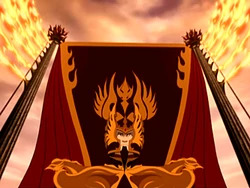
The Restoration of the Phoenix Raises Conflicts between Nations and The Establishment of UCN - Southern Waters Post Editorial — Mehi Koda
Five conference meetings have elapsed, yet the main goal of “world peace” consumes tons of human casualties and even takes the life of the Avatar itself. Riots and civil wars broke out everywhere, especially in Yu Dao. Despite the debates during the conference, the council agreed upon the establishment of the United Council to maintain peace and harmony.
The stakeholders have been drafting the establishment of the United Council of Nations. During the discussion, four councils have been drafted: the Grand Council of Representatives, Economic and Trade Council, Socio-Cultural Council, and Security Council.
Amid the drafting of the United Council of Nations in the conference; it is a shame that the Fire Nations used this chance to send troops to Yu Dao. Quoting from the directive, over 3000 armies are deployed to besiege Yu Dao. The question raised in the council was, “why would you deploy troops in the name of the United Council of Nations when it is still in the drafting phase?”. The use of the UCN flags and white lotus troops raises distrust among the conference.
Although the Fire Lord Zuko has mobilized back the forces in Yu Dao, the Southern Water Nation Republic highly condemns the action that the Fire Nation has taken. The misuse of UCN flags in the name of “peace” is recognized as a possibility for a new form of Fire Nation colonialism and imperialism.
In response to the troop’s mobilization, the Southern Water Nation Republic has been accepting refugees from all nations. This creates the image of the Southern Water Nation Republic as “a welcoming nation for the refugees who seek stability and freedom from oppression”. Furthermore, to protect the citizens of the Southern Water Nation Republic from the Fire Nations Troops, the nation is conducting military exercises.
Coming to the end of the conference, the Fire Lord Zuko had been dethroned and switched with his own sister, Phoenix Queen Azula. However, as Azula took over, she declared an end of imperialism beyond the Fire Islands and opened for discussion regarding colonialism.
Affirming the joint directive from the conference, all four councils of the UCN have their own goals and methods. The Southern Water Nation Republic has taken the right path by taking part in the UCN establishment. As a major economic power among the nations, the methods of the Economic and Trade Council shall promote a better economic activity both on domestic and international level.
At the end of the day, the Southern Water Nation Republic has become a regional power with its economy and armies as well as public’s recognition. The implementation of UCN might be the peace that all nations have wanted. However, transparency and international affairs will be the key to eternal peace. When one’s nation feels higher and mightier than the other, the next hundred years war is not the matter of “if”, but the matter of “when”.
0 notes
Photo
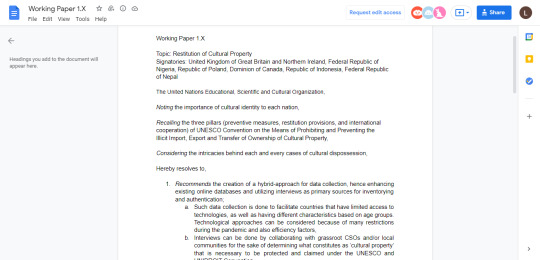
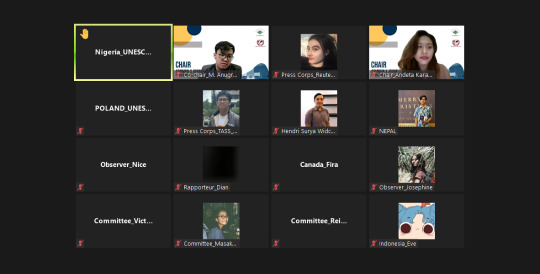
Highlights from today's Modal United Meetings on The Topic Of Cultural Property Restitution - Reuters News Agency — Michelle Nicors
"A country is nothing without culture, and culture is what sets us apart." The Egyptian delegation stated this while delivering the country's stances at the first committee sessions of the Model United Nations Meetings on Saturday (05/06), at 9:00 a.m. GMT+7.
Michelle Nicors as a representative of Reuters had the opportunity to report on the United Meetings model. The topic of today's meetings is restitution of cultural property, which UNESCO defines as displaced cultural entities of a specific nation through pillaging during times of war and conflict. Various countries proposed solutions to this issue during the first committee sessions, with the Egyptian delegation proposing an MVP Framework consisting of Report, Notify, Mediate, and Execution. The Nepali delegation proposed the return of cultural property with the help of technology, while the Israeli delegation proposed the establishment of a platform to facilitate discussions on restitution between the disputing nations.
The second and third committee sessions continued to discuss the proposed solutions' technical and detailed frameworks. Nigeria took the first spot on the General Speakers List, voicing concern to the UN and UNESCO for failing to restore the Benin Bronzes, as they state, “By 2021 there will be at least 3,000 Benin Bronzes scattered throughout the world, with 900 of them in the United Kingdom,”
Nigeria advocate for the establishment of regional cooperation from judicial bodies, as well as international cooperation for developing countries. In the second committee sessions, there was a debate between Nigeria and Israel, where one of the solutions proposed by Israel was to make licenses and certificates of cultural property from each country, while Nigeria stated that its country has limitations in documentation and the country that steals should have the awareness to return the cultural property to the country of origin.
“How do we (Nigeria) prove that our cultural property was stolen? We don't have capacity to do this (restitution),” said the Nigeria delegate to the Israeli delegation in the unmoderated caucus.
Discussions between countries continue as more states elaborated their views on how to resolve this issue. The Canadian delegation proposed case-by-case problem solving by making international and national regulations, and the United Kingdom delegation proposed a hybrid-approach for data collection on cultural property.
"Restitution on cultural property is a bumpy road for ex-colonial countries such as Nigeria or Nepal, and we (Nepal) appreciate the presence of the United Kingdom who approved the return of cultural property and were involved in working paper discussions." said the Nepalese delegation at the press conference held at 15.30.
When the state represented on the UNESCO council completed the production of working papers, the debate over cultural property restitution took a turn for the better. Five countries (Canada, Indonesia, Nepal, Nigeria, Poland, and United Kingdom) signed the working paper. The working paper was then introduced to other states and chairs which contained several solutions to the restitution issue, including (1) use of a hybrid approach to data collection, (2) implementation of national measures to combat illicit cultural property trafficking, (3) strengthening of existing international institutions to combat illicit cultural property trafficking, and (4) emphasis the cooperation between all parties involved in the dispute. In the end, the making of this working paper is a concrete step from various countries to overcome the debate related to cultural restitutions that has been going on for a long time.
0 notes
Text
To: HAIIII CHAIRRRR ADENTA From: Sunflower
The way you smile is like a sun, I don't know, my day without sun you know.............. it's night
0 notes
Photo
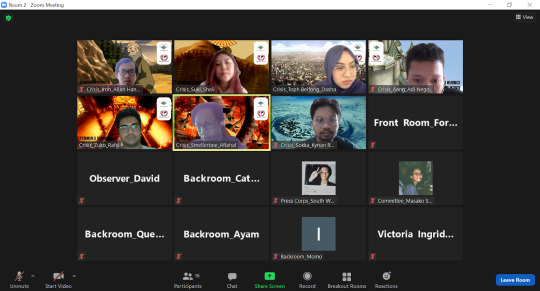
United Council of Nations (UCN) and the Rise of the Southern Water Nation Republic - Southern Waters Post News Article — Mehi Koda
Further discussion during the second and third conference regarding the Harmony Restoration Movements have been done between all representatives of the nations except Kori Morishita. Quoting General Iroh, “the meeting hereby establishes the United Council of Nations as an initiative to maintain peace and harmony among elemental nations”.
Discussion of the establishment of United Council of Nations (from the Zoom Meeting)
Kori Morishita did not cooperate at first since the People of Yu Dao are fighting for their own autonomy. Kori Morishita brought a question about how Yu Dao will be treated by the council. General Iroh and Suki responded, if the people of Yu Dao would go through peace talk, the United Council of Nations can discuss how to establish reinforcement of the Republic of Yu Dao.
The discussion resulted in several to-do lists for the establishment of the United Council of Nations. Some urgent things include the creation of a Security System because of the havoc being done in Yu Dao, especially because Yu Dao has the value of international economy and armies.
During the conference, two new republics rose – The Republic of Yu Dao and the Southern Water Nation Republic. There have been issues regarding the rise of the new nations.
Kori Morishita as the representation of Yu Dao stated there have not been any movements from the fire nations about colonies; hence they started the revolution. However, Iroh declined the statement since the decision should be examined further since the republic is deemed to fall since it is established during the riot.
Contrary to the Southern Water Nation Republic, quoting the Avatar Wiki, the Southern Water Tribe has been reconstructed and become one of the international economic powers. Quoting the directive, “the decision was considered as adaptation by the Southern Water Tribe towards the new modern world and welcome the UCN”. Hence, the Southern Water Nation Republic has taken cautious steps in raising the new government. Further UCN council establishment is being discussed to maintain order and peace.
0 notes
Photo
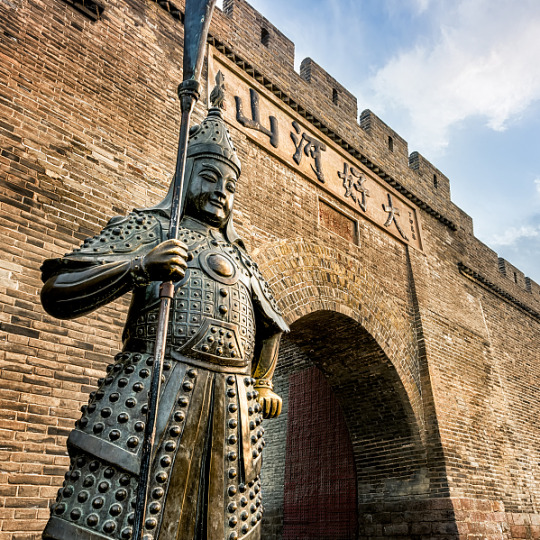
Inside the Council Chamber: China at Forefront of Developing Preventive Technical Measures - Xinhua News — Wang Jianggang
The riveting discussion continues with the second and third committee sessions of UNESCO’s current debate on the return and restitution of cultural properties being held on 5 June 2021 at 11 AM and 1 PM UTC+7 respectively through virtual meeting. Delegates from Nigeria, Indonesia, France, Canada, and the People’s Republic of China have joined the discussion.
As highlighted by the delegate of the People’s Republic of China, a discussion of technical provisions to prevent further unlawful displacement and the safe return of cultural properties is imperative, and effective technical measures must be prioritized. This was echoed by the other states.
Thus, what efforts must be established? Following the preceding committee session, many countries expressed interest in bilateral and multilateral agreements and cooperations. Quoting the delegate of China, “We must provide a wide and considerate approach”. The delegate goes on to say that such arrangements are crucial in reaching less developed states and to integrate them into the narrative. When inquired, China further reiterates that their primary goal is to establish viable aid for underdeveloped nations to rightfully reclaim unlawfully displaced ethnic items.
China also supports Israel's notion that despite earlier agreements from the 1970 UNESCO Convention, the council needs to establish a system that refers to legal certification to ensure eligibility in trade. The delegate of China adds that the importance of proper certification is in the interest of legal excavations. It should be noted that China already implements this scheme. According to the 1970 Convention Implementation Report on the People’s Republic of China in 2015, the State Administration of Cultural Heritage (SACH) screens relics that leave and enter Chinese territory for concrete certification, and conducts inter-regional inspections of cultural properties with relevant government bodies working together.
China has also conducted the first Asian multilateral cooperation agreement with Afghanistan and Pakistan on Asian Cultural Heritage Protection in May 2021, and will be holding the Asian Cultural Heritage Protection Dialogue in Beijing this October to increase cooperation between Asian countries.
Current working papers of this council debate scope a hybrid-approach to data collection in communities with minimal access to technology, the utilization of smart technology in museums to give evidence of an item’s origins, and the increased involvement of local populations to tackle illicit trafficking of cultural properties.
Image source: CTGN
0 notes
Photo
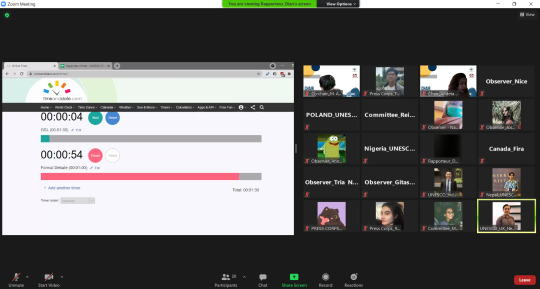
Pressure from Ex-Colonies States Keep Mounting as no Detailed Solutions have been Gained -TASS Russian News Agency – Maria Khrenova
Today’s second and third committee session of UNESCO (6/5/2021) are going in a loop as further debates on the matter of restitution of cultural properties appear to be jumping to conclusions. Continuity of certain solutions such as those proposed by the delegate of Egypt are seen during the committee sessions.
The highlight of today’s committee session is during the unmoderated caucus. One interesting point that was debated by the delegates in UNESCO is how former colonies are not able to prove their own cultural heritage. The delegate of Nigeria stated that this sort of argument makes sense as most looting that had happened occurred during a state of colonization hence no official government record are produced.
Furthermore, Israel then proceeds to satirize on how the western states or ex-colonizer countries are not invested enough into the debate and emphasizes the importance of creating a hybrid approach which include individual interviews for countries.
The delegates of UNESCO hope that in the upcoming committee sessions, they can implement these solutions alongside with new solutions into a Working Paper that the council has started drafting.
0 notes
Photo
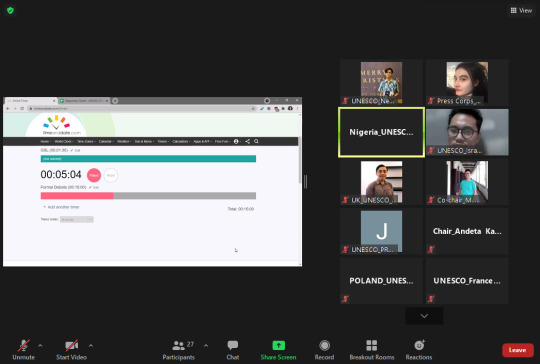

The Cultural Restitution Debate Continues in The Second Committee Sessions - Reuters News Agency — Michelle Nicors
The second committee of Model United Nations, which met on Saturday (05/06) at 11 a.m. GMT+7, revisited the subject of cultural restitution. France, Indonesia, Israel, Nepal, Nigeria, Poland, the People’s Republic of China, and the United Kingdom are among the countries represented at the discussion.
The agenda for the committee session was opened by a delegation from Nigeria, who stated in the General Speaker’s List, "By 2021, there will be at least 3,000 Benin Bronzes scattered throughout the world, with 900 of them in the United Kingdom." The Nigerian delegation expressed its displeasure with the UN and UNESCO for failing to return Benin bronzes to their respective countries.
Israel continued the sessions by submitting a motion titled International Cooperation on the Effort of Cultural Heritage Restitution, in which it proposed bilateral cooperation through extradition agreements, regional cooperation through organizations such as ASEAN, and international cooperation through the United Nations platform. Other countries involved in this discussion, such as Nigeria, also desire cooperation between countries to address this issue.
"We need regional cooperation from judicial bodies, and international cooperation is critical for developing countries' restitution efforts, because we (Nigeria) lack the capacity to address these issues (alone)," the Nigerian delegation to the moderated caucus said, emphasizing the importance of inter-agency cooperation.
In its Motion to Tackling Illegal Excavation in Heritage Sites, the Nepali delegation proposed a technological approach to mapping archeological sites. Israel requested certification and licensing for all national cultural properties to prevent unauthorized excavations. The Nigerian delegation, on the other hand, claimed that its country lacked documentation for the stolen cultural property and that it is the responsibility of the stealing country to return the cultural object to its origin country.
The second committee session concluded with an unmoderated caucus in which the state discussed the Working Paper and prepared to begin work on it.
Our Standards: The Thomson Reuters Trust Principles.
0 notes
Text
To: Avatar Aang From: Press journalist
F in the chat for our fallen comrades, Avatar Aang
0 notes
Text
To: Kak Andeta From: Observer
kak deta so beautiful whats your secret ?!?!?!?!?!
0 notes
Text
To: Kori
kori u give me debater vibes, are u an ex debater
0 notes
Text
To: Unesco deles From: a journalist
pada oncam doong pls :( i want to see u guys
0 notes
Text
To: Whole Crisis Council
Crisis brasa UNSC ya gini dah wkwkwk
0 notes
Text
To: hottest chair From: <3
kak andeta you're suuuuuuper adorable i want to keep you in my pocket
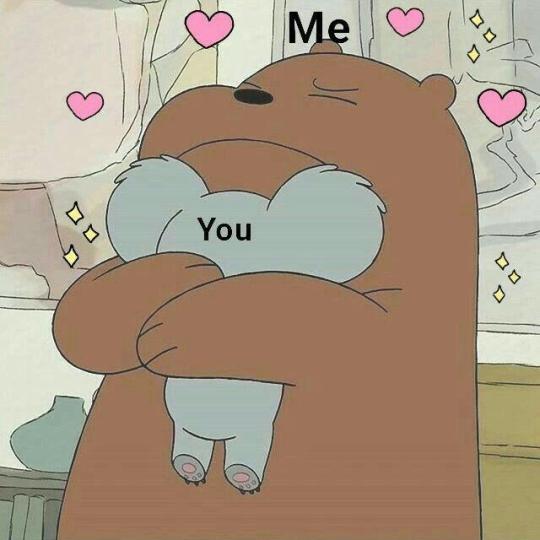
0 notes
Text
[Fantasy Crisis]
Brasa jadi daniel pangaribuan gw disini wkwkwk
0 notes
Text
To: KAK ANDETA From: secret admirer
kak andeta i have the biggest crush & im pretty sure everyone here to, kindly step on me pls thank u

0 notes